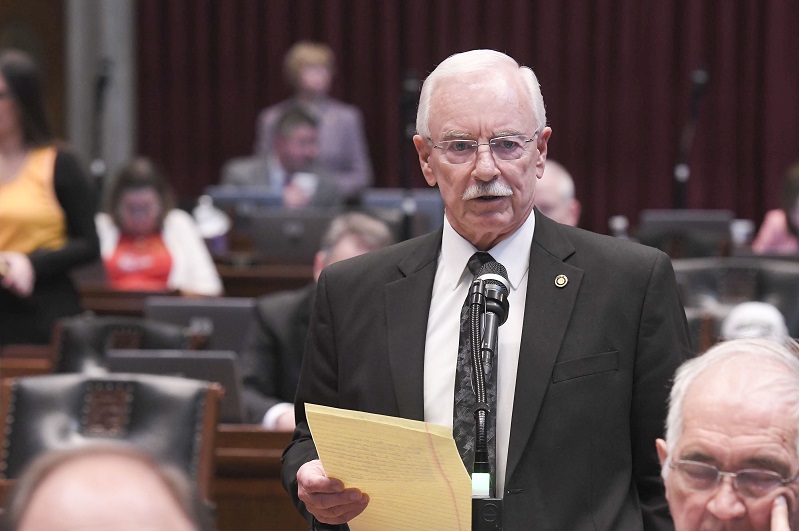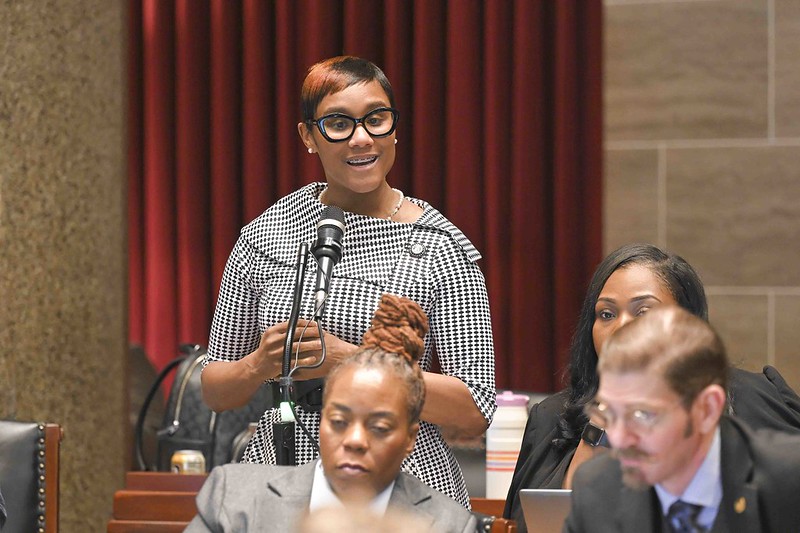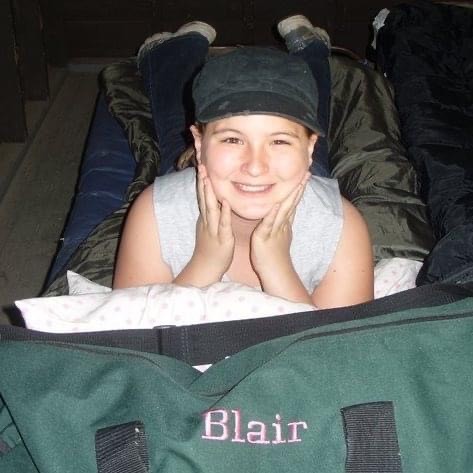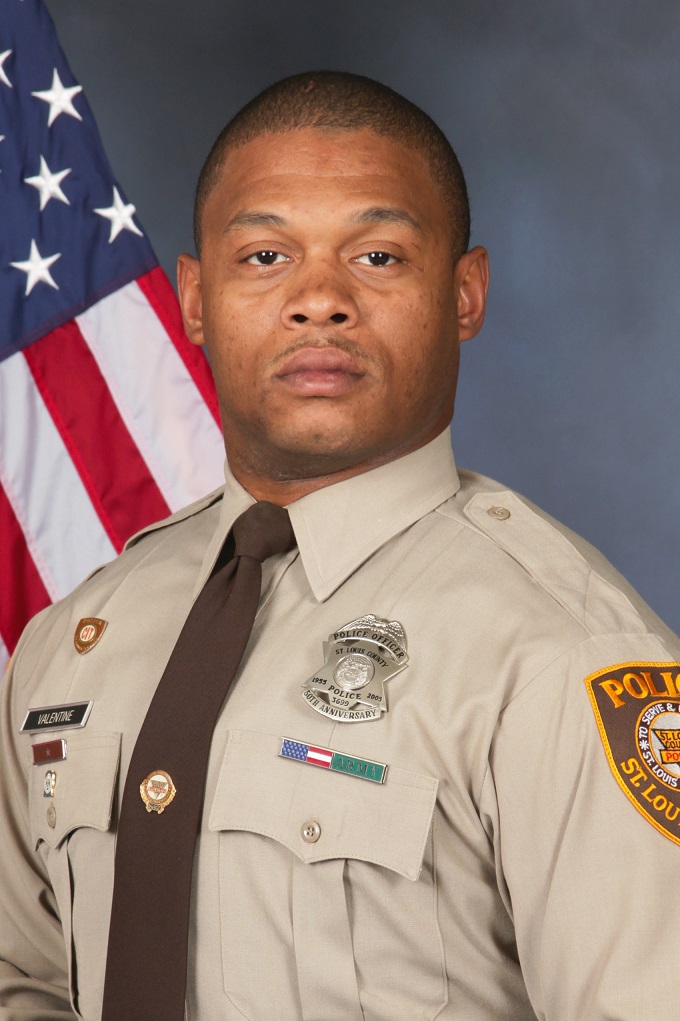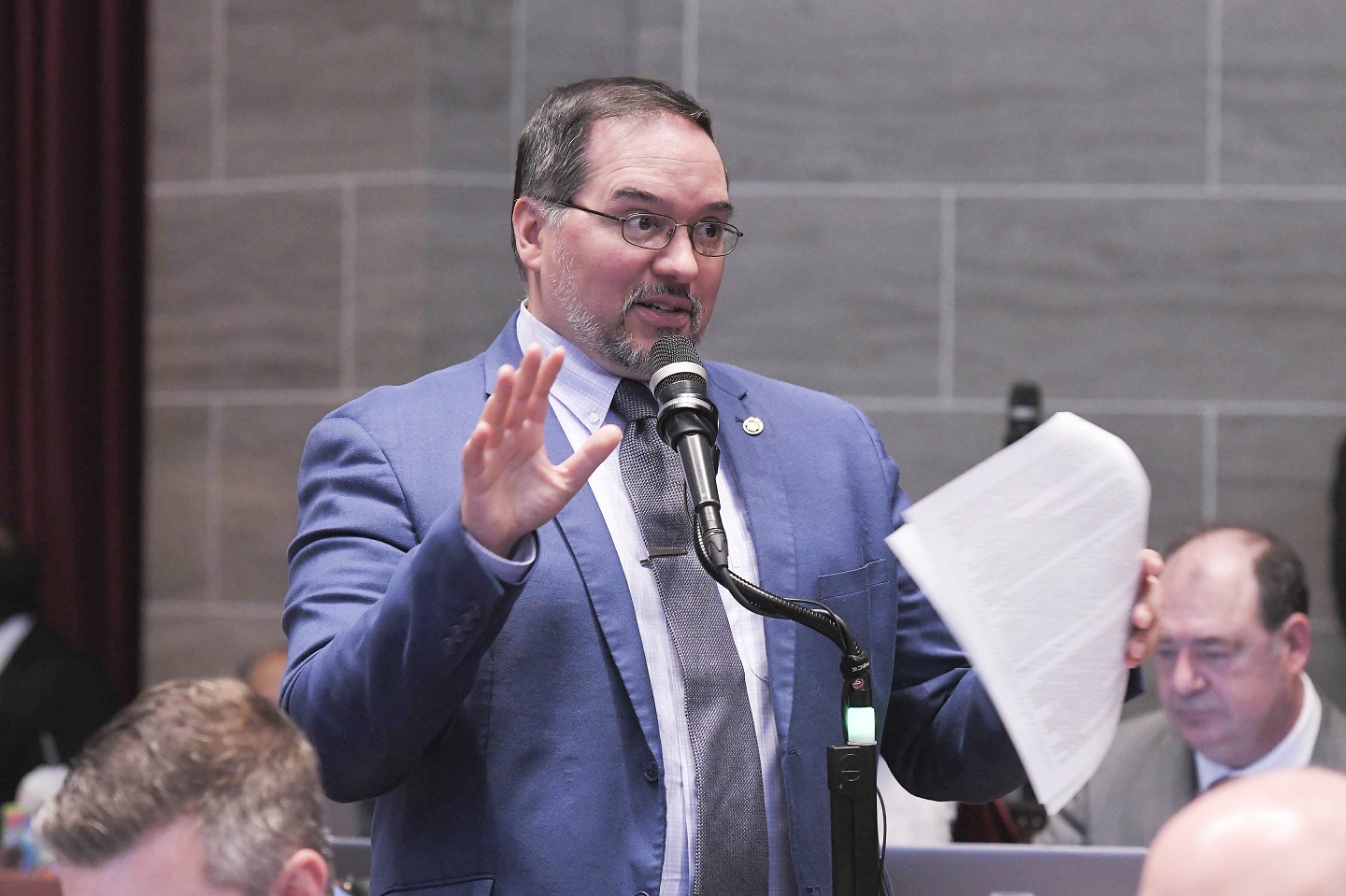As the Missouri House began its 2026 regular session, Representatives Lane Roberts (R-Joplin) and Jim Schulte (R-New Bloomfield) were presented with pins recognizing their service in Vietnam. They received their pins from fellow veteran and Chairman of the House Veterans and Armed Forces Committee, Representative Dave Griffith (R-Jefferson City), who was introduced by Representative Don Mayhew (R-Crocker).
Tag: Lane Roberts
VIDEO: House Members Threaten Budget of State Public Defender over Hiring of Man Convicted in Relation to Stepdaughter’s Murder
Some members of the House Budget Committee said on Thursday they would vote down the entire state Public Defenders Office budget requests if that agency continues to employ a man convicted of two felonies in relation to the murder of his 9-year-old stepdaughter.

“How can anybody say that employing this man and providing him with a good future in some fashion furthers the interest of justice for Rowan Ford, a 9-year-old child who died violently while her stepdad stood back and kept his mouth shut? How does that further the interest of justice for that child?” asked Representative Lane Roberts (R-Joplin), the House’s Assistant Majority Floor Leader, who was sitting with the committee as an ex-officio member.
The man to which he referred is David Spears, who in 2012 pleaded guilty to endangering the welfare of a child and hindering prosecution in the 2007 murder of his stepdaughter, 9-year-old Rowan Ford, in the southwest Missouri village of Stella. He at one time confessed to raping and murdering Ford along with another man and to helping hide her body, but evidence and the other man’s confession contradicted his description of events, and defense attorneys contested the confession as allegedly having been coerced. Prosecutors later withdrew their original charges against him, and he accepted a plea agreement on the lesser charges.
That other man, Christopher Collings, was executed by lethal injection in December at the state prison near Bonne Terre.
Spears was released from prison in 2015 and in 2016 was hired by the Public Defender’s office. After a period during which he was not employed by the public defenders, he was rehired in 2020 and continues to work out of its West Plains bureau.
“He’s got a paycheck, he’s got benefits, and he’s got a future, which Rowan Ford does not because she’s dead, and the idea that he is being paid for at public expense; tax dollars paid for by Rowan Ford’s mother, Rowan Ford’s extended family, Rowan Ford’s classmates, Rowan Ford’s teachers, and the police officers who had to investigate that horrible crime are all paying David Spears’ salary.”
Rep. Lane Roberts
The Secretary of State’s Accountability Portal website shows David Spears is a secretary employed by the judiciary (the Office of Public Defender is an independent department of the judiciary), and that last year he made $40,842.00.
Shortly after the Public Defenders’ Director, Mary Fox, began her presentation to the committee for her agency’s budget requests, she was met with outrage from committee members over Spears’ employment.
Chairman Dirk Deaton (R-Seneca) read a summary of the case and then asked Fox, “So in the opinion of, and perhaps yourself, but certainly the human resources manager, the general counsel, the division director, the immediate public defender hiring authority, and the deputy director, it was their belief that these offenses – felony child endangerment leading to the death of a 9 year-old girl, obstruction of justice, hindering of prosecution – wouldn’t impact the individual’s ability to represent the agency effectively?”
Fox responded to that question by saying that she cannot discuss a personnel matter in a public hearing, but as the hearing continued, she defended Spears’ hiring, saying that the agency and Missouri believe that “people with criminal convictions should be able to be employed, even by the state.” She said there was doubt as to what Spears’ role in the crimes against Rowan Ford was and said he has performed well in his job.
As the exchange progressed, Deaton told Fox, “I believe people deserve second chances and … people deserve to live their lives and go on. Not everybody deserves to work for state government. That would be my firm belief and position. Nobody’s owed a taxpayer job and a salary, and this is just one of the worst lapses in judgement I have ever seen.”
Deaton told her, “Well, Miss Ford certainly deserved to live, and she didn’t get that opportunity.”
Deaton then gave the floor to Representative Roberts, who was the Chief of the Joplin Police Department when Rowan Ford was murdered and during the subsequent investigation.
“We as an agency, and I think that Missouri as a state, believe that people with criminal convictions should be able to be employed, even by the state.”
Missouri State Public Defender Director Mary Fox
Roberts began by stating his respect for Fox and the work done by her and those in her agency. He then recounted a letter to the Commissioners of the State Public Defender that he penned in December which was also signed by fifteen additional current and former state representatives, including Deaton.
See Rep. Roberts letter to the Missouri State Public Defender here, and click here to see the Missouri State Public Defender Commission’s letter in reply.
Regarding Spears’ employment, Roberts wrote in that letter, “There is no defending this situation. It is wrong by any standard and we are unwilling to accept it.”
Since that letter was sent the Commission did alter hiring practices, and Fox confirmed that the changes are in “direct response” to the letter.
Under the changes, potential new hires will now be subject to investigation for potential conflicts of interest. Roberts and others say there was a conflict of interest in Spears’ hiring, particularly in that he was hired while his one-time co-defendant Christopher Collings was being represented by public defenders.
The other change is that when a background check reveals what Fox called a “bad report,” the Director and the Chair of the Commission must be consulted. Previously, such notification extended only as far as the office’s deputy director.
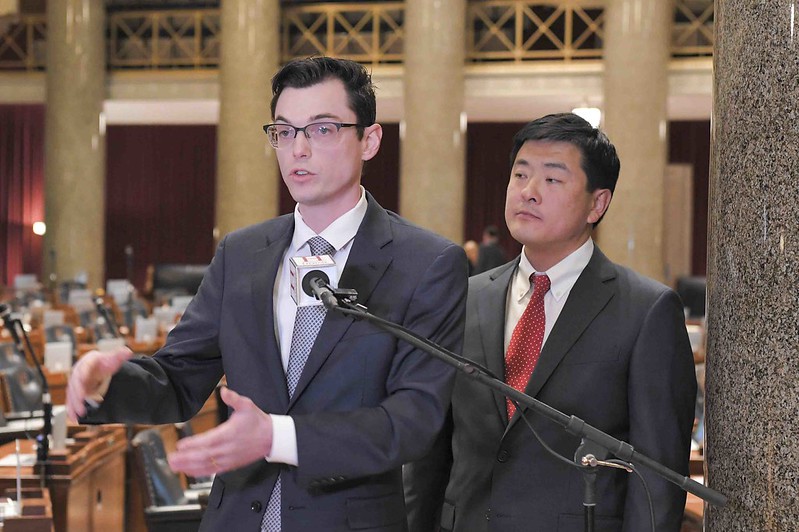
As to the legislators’ request that Spears employment be terminated, Commission Chair Charles Atwell issued on January 16 a letter to Roberts stating that after a review of Spears’ case and of Missouri statutes governing the office of public defender, “we believe that the authority to terminate employment of a clerical employee is not an express power granted to the Public Defender Commission.”
As the exchange continued, Fox and Roberts disagreed over the circumstances of Spears’ actions in relation to the murder of Rowan Ford. Specifically, Fox contested Roberts’ statement that Spears led authorities to the little girl’s body.
“This is the most ridiculous presentation we’ve heard. It’s embarrassing.”
Rep. Jeff Vernetti
“There’s a lot of details in a case … if you look at the evidence that was presented at the one case that went to trial, the evidence was that they went through the entire area. Some of the places they went, they went with Mr. Spears, but they did not find the body when they were with him. They did go back to many of those areas and one of those areas that they went back to, they did, eventually, find the body. But I would disagree with you, and I think the prosecutor in the case would disagree with you that Mr. Spears took them to the body,” said Fox. “I know that you were involved in law enforcement in the area at the time and were talking with the folks from McDonald and Barry [counties], but I think there was disagreement even among the police officers from Barry County and the police officers from McDonald County. One group felt Mr. Spears was responsible, the other group felt that he was not.”
Roberts told Fox that his concern has nothing to do with the quality of Spears’ work, but that he is employed by the state at all. After their exchange, other members of the committee echoed that sentiment.
Most passionate was Representative Raychel Proudie (D-Ferguson).
“I’m a no on this entire [budget request] book.”
Rep. Raychel Proudie
“I’m shaking, like I’m physically ill, so I’m going to leave after I say this. Let me just say I’m a ‘no’ on this entire book,” Proudie said, referring to the entire budget request from the Office of Public Defender. “With good conscience spirit I can’t go back to District 73 and tell these people that it is okay for us to use their money to pay someone who was complicit and willful even if it wasn’t for the murder, this man stood there with that woman while she was looking for her child.”
Echoing Deaton’s comments about whether Spears’ employment reflects badly on the office, Proudie said, “it does, because I’m going to walk out of here, and when it comes up, if that man is still employed, if I’m elected to something else [in the General Assembly], it will be a ‘no’ on this budget for the entirety of time that the Good Lord sees for me to serve in the legislature, and I mean it. So, if you don’t think it damaged your reputation, it absolutely did. I can’t believe that that was the response that you… I would have rather you sat there and said nothing.”
As to the office’s budget request, Roberts told Fox, “I am angry enough that I am going to ask the chair to consider an amendment during markup. I know you have [a new request to the budget committee] for some additional people. If this is going to be your hiring practices, then I would suggest that we deny that until such time as your policies allow the Commission to weigh in on these decisions and they have the majority vote.”
After her statement, Proudie did something she said she has never done in her seven years as a state representative, no matter how controversial or objectionable she found a subject: she walked out on the hearing. Outside the hearing room, representatives not on the budget committee later commended her for saying what they were thinking as they watched the hearing.
Her departure was soon followed by that of first year legislator, Representative Jeff Vernetti (R-Camdenton), who said, “This is the most ridiculous presentation we’ve heard. It’s embarrassing.”
“As a member of 163 [members of the House], subcommittee that controls [the budget of the Office of the Public Defender], member of budget, I’m a ‘no.’ I’m not even interested in hearing it until this is addressed,” Vernetti said before he, too, walked out of the hearing.
“I just plain don’t care. I don’t care about the reputation of the Public Defenders. I don’t care that he’s doing a good job. He has not, and never will, pay his debt to Rowan Ford.”
Rep. Lane Roberts
Following those remarks, Deaton told Fox she could continue with her presentation, but she asked if it should be continued at another time.
“I don’t want you to just say, ‘No, I won’t consider your budget.’ That’s not fair,” Fox told the committee. “I know you’re angry and I appreciate why you’re angry, and I just want you to think about the fact we experience this anger 80,000 times a year in our jobs, and we have people who do this really hard work, and they deserve your attention. They deserve for you to hear who we are – all of us, not just one person – who we are and what we do, and why it’s so important.”
Roberts and Deaton agreed it would be better to continue the office’s presentation at another time. With the committee’s schedule for next week already set, Deaton asserted that it would likely be two weeks before it could happen.
Deaton cautioned, “If we’re at the same place, say it’s in two weeks, I think we’re probably going to be right back where we are.”
Fox thanked the committee for listening to her, as well as to Deaton and Roberts, and agreed to come back at another time.
‘Blair’s Law’ Passed Again, Sponsors Confident it will Become Law
A mother’s nearly 13 year quest for justice for her daughter might have finally reached its end, with one of the bills passed at the end of this year’s regular legislative session.
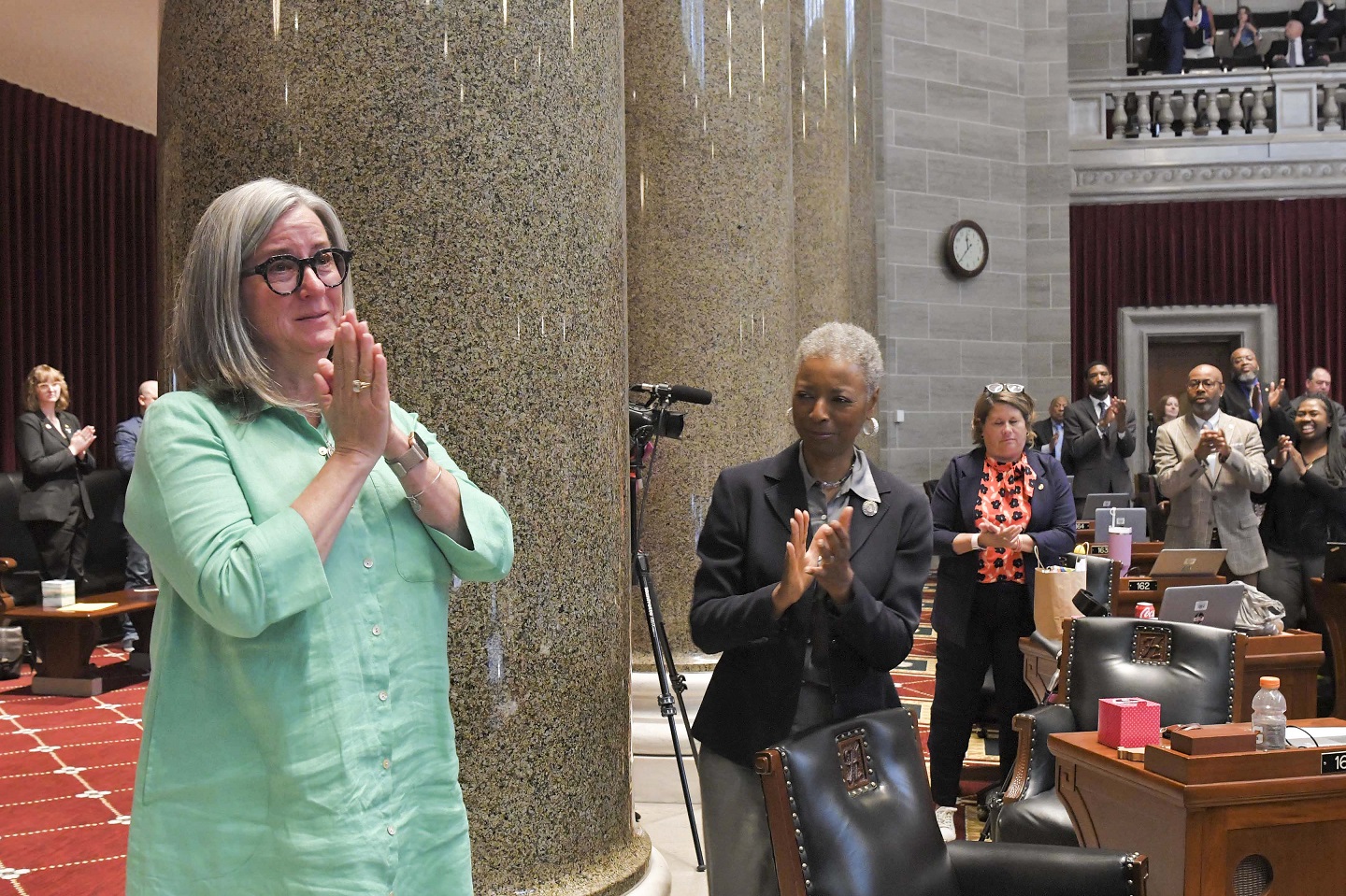
On July 4, 2011, 11 year-old Blair Shanahan Lane was struck by a bullet fired carelessly into the air by a person more than half a mile away. Blair died the next day. The man who fired that gun served 18 months in prison for involuntary manslaughter. There is no state law that addresses what is often called “celebratory gunfire.” Every legislative session since her daughter’s death, Michele Shanahan DeMoss has come to Jefferson City in an effort to change that.
On the final day of the 2024 session the legislature gave final passage to a bill that included Blair’s Law, to criminalize the careless discharge of a firearm in or into the limits of a municipality.
“I woke up this morning and I said, ‘This is the day. Let’s do it,’ and I just felt, without any hesitation, that it would happen,” Shanahan DeMoss said of that morning, and how she felt before heading to the Capitol. She was in the House when the final vote was taken.
Mark Sharp (D-Kansas City) was one of the sponsors of Blair’s Law, as he has been for the past five years. He has long seen the passion and emotion Shanahan DeMoss pours into the effort, and it became personal for him as well.
“It’s been so important to my community,” Sharp said. “Just in my own neighborhood, alone, on days like Fourth of July or New Year’s Eve and we have an almost three year-old daughter, and sometimes we don’t even feel comfortable sitting in our living room on the Fourth of July or New Year’s Eve because of the amount of gunfire that we can so easily hear. It sounds like it’s on your own street, it’s so close it comes to feel like it’s in your backyard. It’s very scary. People have been hurt and killed, officers have been hit by bullets that come down, it’s just incredibly scary. We hope that our prosecutor and our chief of police will work together to make some arrests.”
Representative Sherri Gallick (R-Belton) also sponsored Blair’s Law this year. She first heard about it directly from Shanahan DeMoss after knocking on her door while campaigning. She decided, then, that she would also push for the legislation.
Blair’s Law would specify that a person is guilty of unlawful discharge of a firearm if they, with criminal negligence, discharge a firearm in or into the limits of a municipality. A first offense would be a class “A” misdemeanor which carries up to a year in jail and a fine of up to $2,000; a second time would be a class “E” felony carrying up to four years in prison; and third and any subsequent offense would be a class “D” felony, punishable by up to seven years in prison.
The first time Blair’s Law was truly agreed to by the House and Senate was in 2023, but it was part of a bill that included other provisions to which Governor Mike Parson (R) had objections, and because of those he vetoed it.
Sharp and Gallick anticipate it will be signed this year.
“Last year was a little different because it was the first time passing Blair’s Law, and it was a little surreal, so when he vetoed it I wasn’t completely surprised,” Sharp said. “This year I have every reason to think the governor’s going to sign it. It’s been a very emotional day for me personally.”
Even after going through the emotional high to low of the first ever passage of Blair’s Law last year followed by the disappointment of its veto, Shanahan DeMoss did not hesitate to come to the Capitol multiple times this year to push for it again.
Supporters note that one of the positives of the proposal not having passed for so many years is that it continued to garner attention throughout that time. That publicity likely prevented at least some incidents of people firing a gun into the air.
Even if the governor signs Blair’s Law this year, Shanahan DeMoss, Gallick, and Sharp say they want to keep that attention up. That is especially true as the Independence Day holiday approaches, as it is both the anniversary of Blair’s death, and it remains a time when incidents of “celebratory gunfire” spike.
Last year the Kansas City Police Department’s SoundSpotter system – sound capturing technology that the Kansas City Police Department uses to identify potential gunshots – detected 193 rounds fired between 6 p.m. on July 4 and 6 a.m. on July 5.
“I don’t think that [Shanahan DeMoss is] just going to say, ‘Okay, this is done,’ because that’s not who she is,” Gallick said. “She will continue to bring awareness to it. I think it’s up to us, and the media, to be honest with you. Especially around the Fourth of July, but even with celebrations with the Chiefs and New Year’s and other things that go on, people should not be firing guns recklessly.
Gallick and Sharp are the latest in a long line of former House members who have sponsored Blair’s Law since 2011.

“I want them to know that I celebrate them,” DeMoss said of them, and of all the legislators who have carried the measure. “I celebrate that they put in the effort, that they listened to me, which I know at times is probably hard because I have a tendency to go on and on until I know I’ve driven my point home.”
Blair’s legacy continues in other ways, as well. Six of her organs went to five people, and her mother runs a charity in her name. Blair’s Foster Socks gives socks and other items to children in need.
Blair’s Law was sent to Governor Parson as part of Senate Bill 754. He can sign it into law, veto it, or allow it to become law without his action.
Shanahan DeMoss, like Sharp and Gallick, believes he will sign it, and said if a signing ceremony is held, “I will be there.”
House passes ‘Valentine’s Law,’ increasing penalties for fleeing, resisting, or interfering with arrest
The Missouri House this week voted to increase the criminal penalties for resisting or interfering with an arrest, or fleeing from law enforcement. The bill is named in honor of a St. Louis County Police Detective who was killed by a fleeing suspect, in 2021.
That was the opening statement from Representative Justin Sparks (R-Wildwood), the sponsor of House Bill 1692. Sparks was with the St. Louis County Police Department for nearly 15 years. He knew Detective Tony Valentine personally, and was on the scene when he died.
Sparks was certainly not the only House member to speak in favor of the legislation with passion borne of personal experience. Representative Lane Roberts (R-Joplin), whose career in law enforcement spans decades, including as Joplin Police Chief and the state’s Director of Public Safety, said he knows what it’s like to lose friends and to lose those under his command.
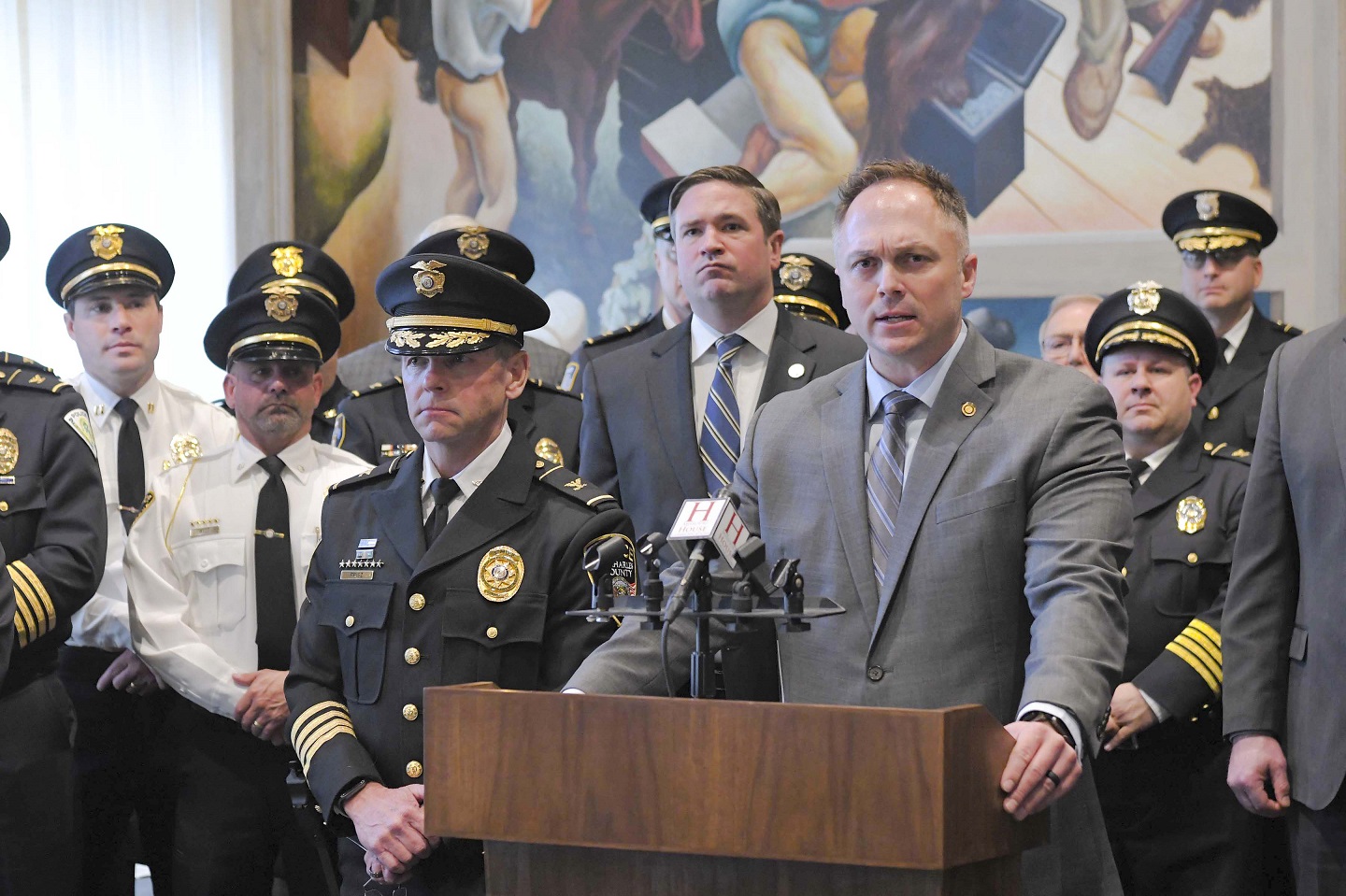
In a display of the bill’s bipartisan support, Representative Robert Sauls (D-Kansas City), agreed. His career includes time as both a Jackson County prosecutor, and as a public defender.
“There are a couple of offenses that I think, maybe, the penalty might be too harsh, and there are some where I think it is too light, and this is one that I think is, in particular, too light, because of what the ultimate harm may potentially be,” Sauls said. “This offense has the potential to kill and harm people and I just think … it’s one of the few that I think is too soft.”
“This applies to the violent felons who know exactly what they’re doing and who accelerate at extreme speeds into oncoming traffic, putting everybody at risk,” Sparks explained.
A person would violate Valentine’s Law if they reasonably know law enforcement is trying to stop them and they flee at a speed 10 miles per hour or more greater than the posted speed limit, and if, in doing so, they pose a risk of physical harm or death to any person.
The offense would be a class D felony with a one-year minimum prison sentence. It would increase to a class B felony if, by fleeing, they cause serious physical injury to another person. It would become a class A felony if by fleeing they cause another person’s death.
The bill also adjusts the circumstances for when resisting or interfering with arrest is a class A misdemeanor and when it is a class E felony. If such an act is committed with the use of a deadly weapon or dangerous instrument, or involves taking someone hostage, it would be a class A felony.
The House voted 107-25 on Wednesday to send HBs 1692 & 1748 to the Senate, where versions of Valentine’s Law have been advanced out of a committee and a bill that includes it has been passed and sent to the House.
Enhanced distracted driving law sends message: don’t text while driving
Missouri’s newly-enhanced distracted driving law takes effect on Monday, and House members say it’s a message to drivers in the state: put your phones down.
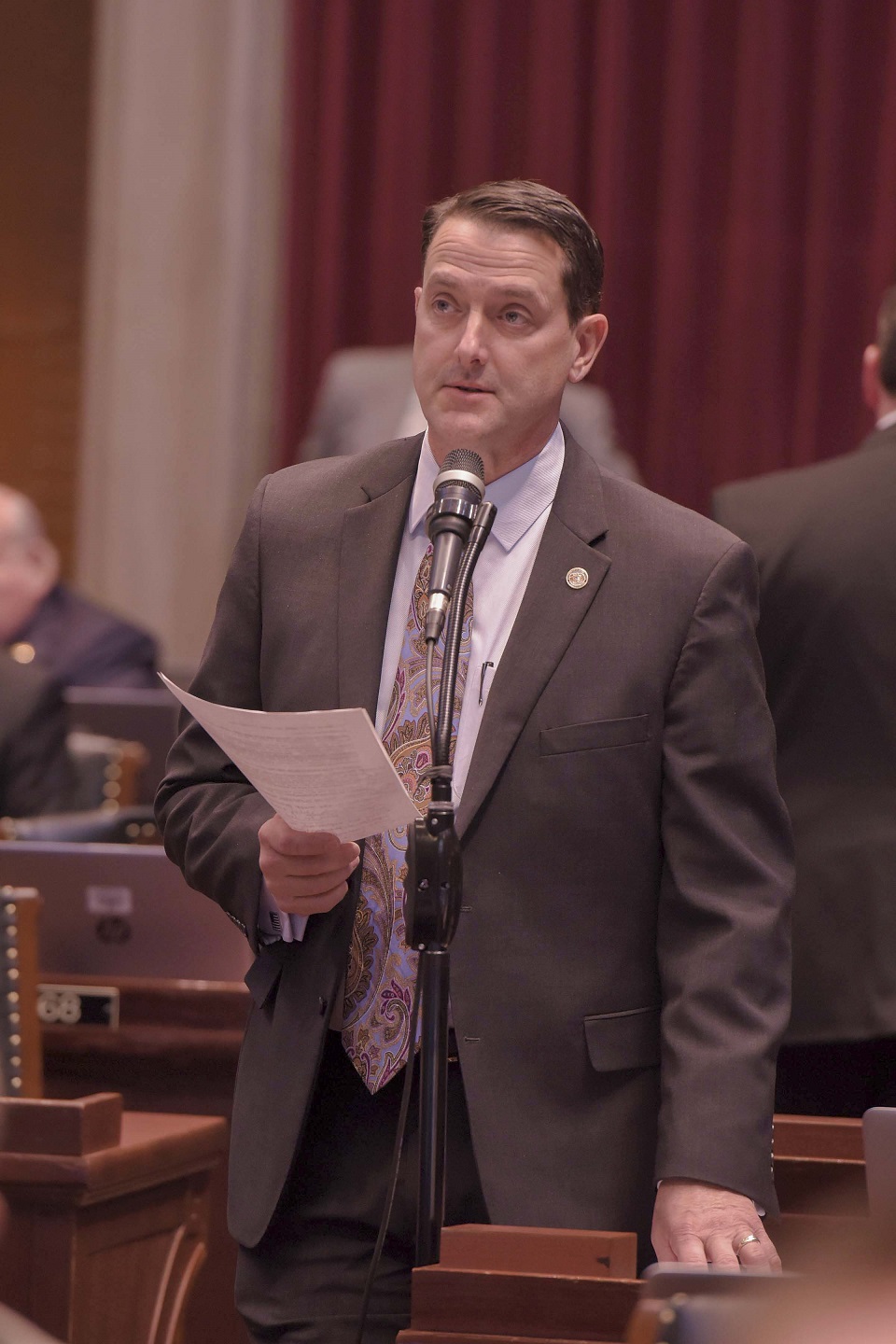
After years of the General Assembly considering and rejecting bans on texting while driving, the legislature this year agreed to a ban that covers holding a phone; the typing or sending of text-based messages; video calls or broadcasting or otherwise recording and sharing videos; and watching videos or movies. The language was part of Senate Bill 398, signed into law last month.
It’s called the “Siddens Bening Hands Free Law,” named for two Missourians who died in separate distracted driving incidents.
Representative Jeff Knight (R-Lebanon) handled that proposal in the House. He knew the history of the texting while driving issue was one of a long time lack of consensus. This was based, in part, on conservative lawmakers’ desire not to infringe on individual liberties. So, Knight had concerns when it was amended to another bill he was carrying and wanted to get passed. After talking to some of the opponents of the issue and others with a stake, he decided to let it stand.
He said as technology has evolved, any need to let people keep holding their phones has diminished.
Representative Lane Roberts (R-Joplin) has an extensive background in law enforcement, including as a former Joplin Police Chief and Director of the Department of Public Safety. He agreed that this year’s proposal included the right provisions at the right time.
“Finding that balance between individual liberty for one person when it begins to encroach on the safety or the liberty of another is not a bright line. It’s always a challenge to find the balance, and I think that’s what this bill does,” said Roberts. “It recognizes that we’ve grown to the point where the use of technology is so prevalent that misuse of it puts other people at risk, and then given the fact that there is the availability, so many alternatives for hands-free use of technology, it’s just time to think about how we go about limiting that.”
Also on the language’s list of bipartisan backers is Representative Steve Butz (D-St. Louis), whose background is in the insurance industry. He said distracted driving has long been a concern for that industry.
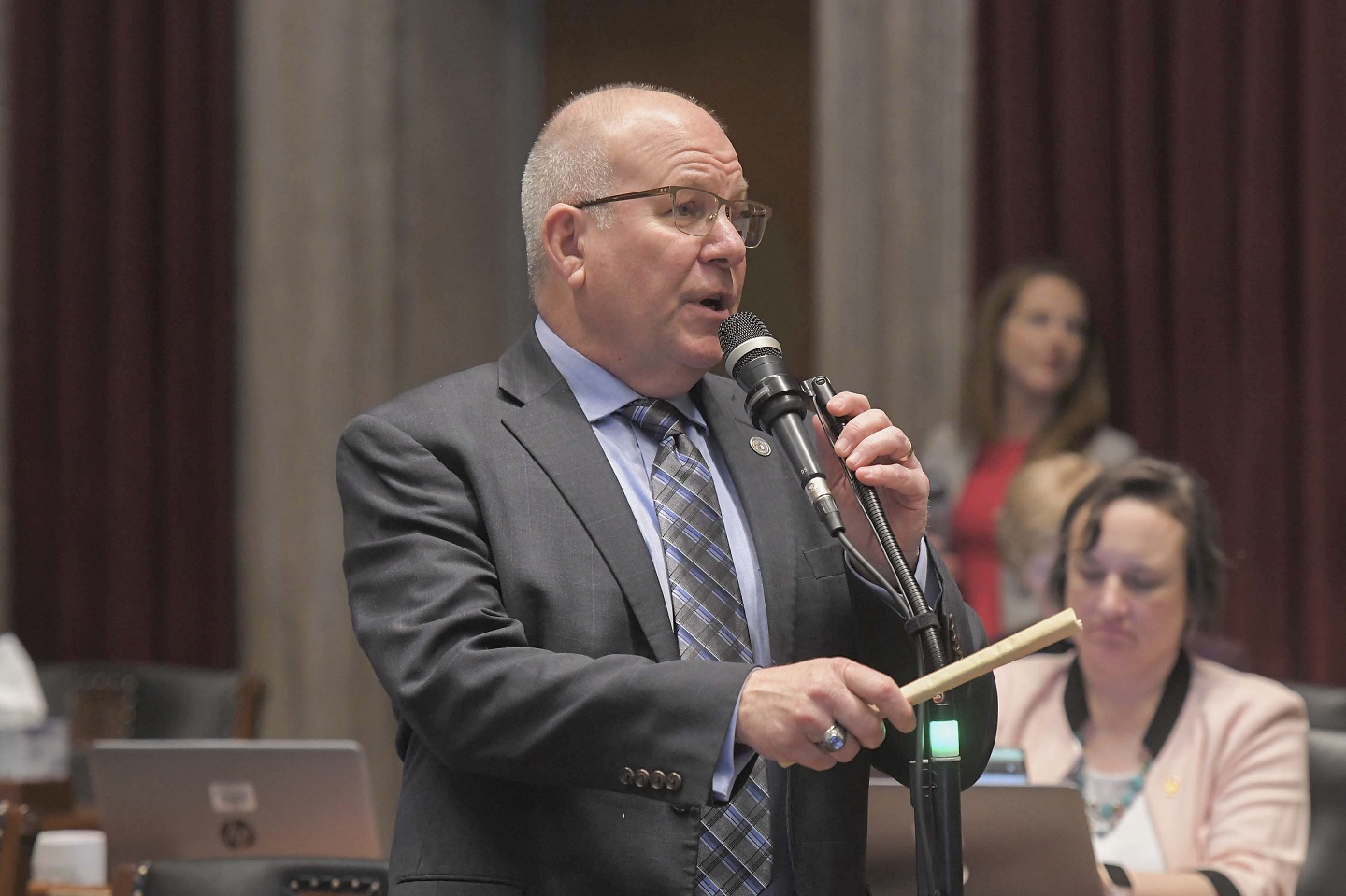
Knight and Roberts, like others in their caucus, said they still hold personal liberties as important, but said those concerns were tempered by the fact that the bill makes phone use a secondary offense. That means a traffic stop can’t be triggered just by phone use. A person has to be stopped for something else before they can be cited.
Butz agrees that the most important thing this bill does is send a message that legislators, on behalf of Missouri citizens, are telling drivers that they shouldn’t be on their phones and behind the wheel at the same time.
“At this point I don’t believe anybody believes that texting while you’re operating a vehicle, regardless of who you are or where you are, could possibly be considered safe,” said Roberts. “The important thing is that the law now acknowledges that [texting while driving] is problematic. There are now some parameters in place to exercise some level of control and hopefully it will lead to some prudence in the development of technology and people’s decision making. It’s like seatbelts. [The state’s seatbelt law creates a secondary offense] but the fact that you’re required to wear it, the fact that it gets a lot of attention, has most definitely increased the use of seatbelts, so this is very similar.”
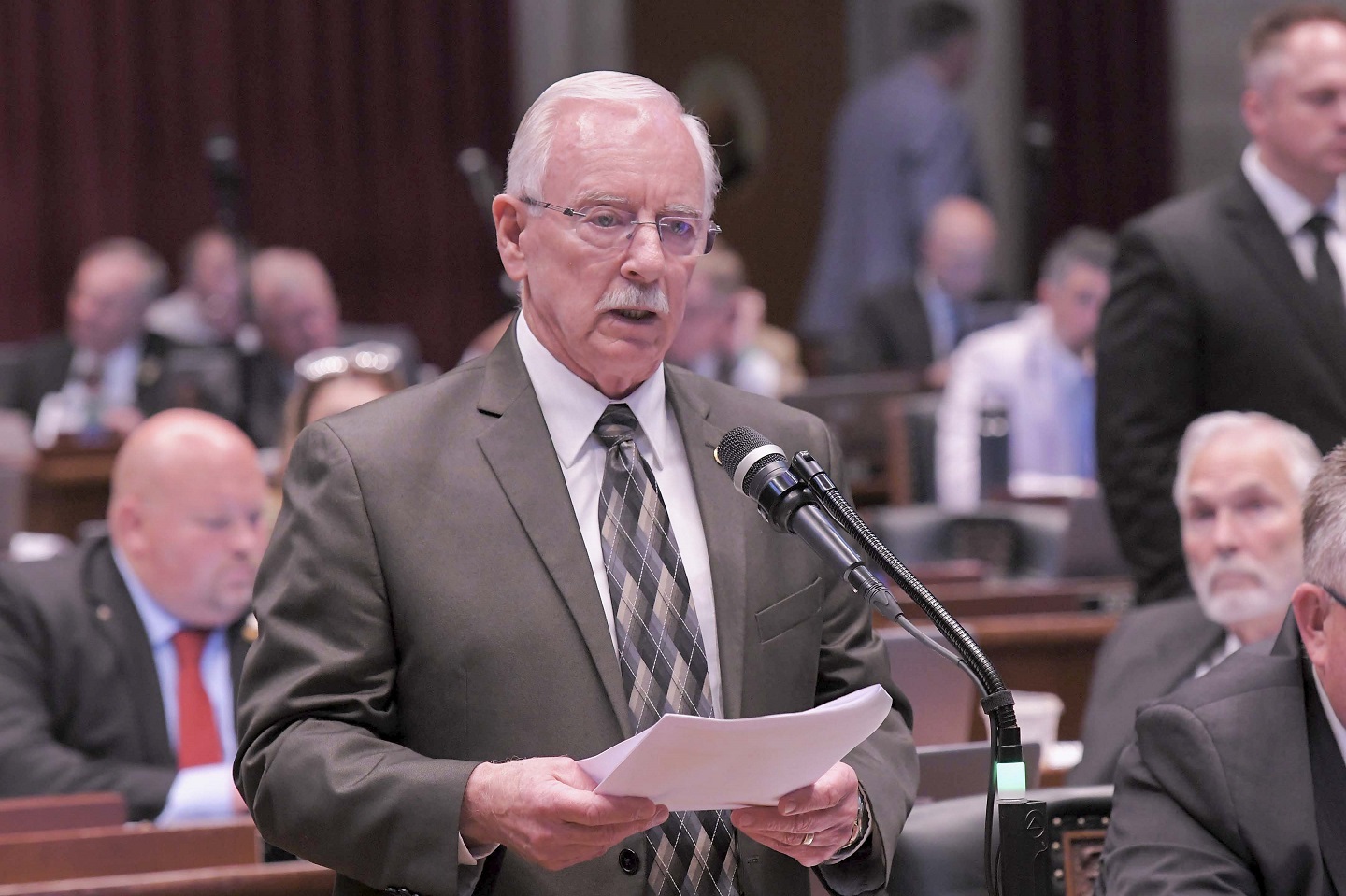
As was the case with the seatbelt law when it passed, Roberts and his colleagues expect it will take some time to see wholesale change in drivers’ habits now that the updated distracted driving law has been passed.
The tougher law regarding phone use was long sought by road safety advocates, who are pleased with the passage. The Missouri Department of Transportation says in the ten years up to 2021 there were nearly 200,000 distracted driving related crashes in Missouri, which caused no fewer than 801 deaths. Some agencies think the real totals are far greater.
Michael Bening of Raymore was 46 and trying to clear debris from a highway when he was hit and killed by a driver believed to have been distracted, on Interstate 49 in Cass County in May, 2021. Randall Siddens was picking up traffic cones after a race in Columbia in May, 2019, when a woman who was driving while voice chatting swerved around a vehicle stopped at a red light and hit him.
The bill including the law bearing their names was passed out of the House 97-40. While the law takes effect on Monday, its penalty provisions won’t be enacted until January 1, 2025, to allow for a grace period while the public is educated on the new law.
911 Dispatchers get ‘First Responder’ status, more mental health help options
Missouri 911 dispatchers will now be considered “first responders” in state statute under legislation that becomes effective next month. That will bring a lot of changes, including increased access to mental health resources.
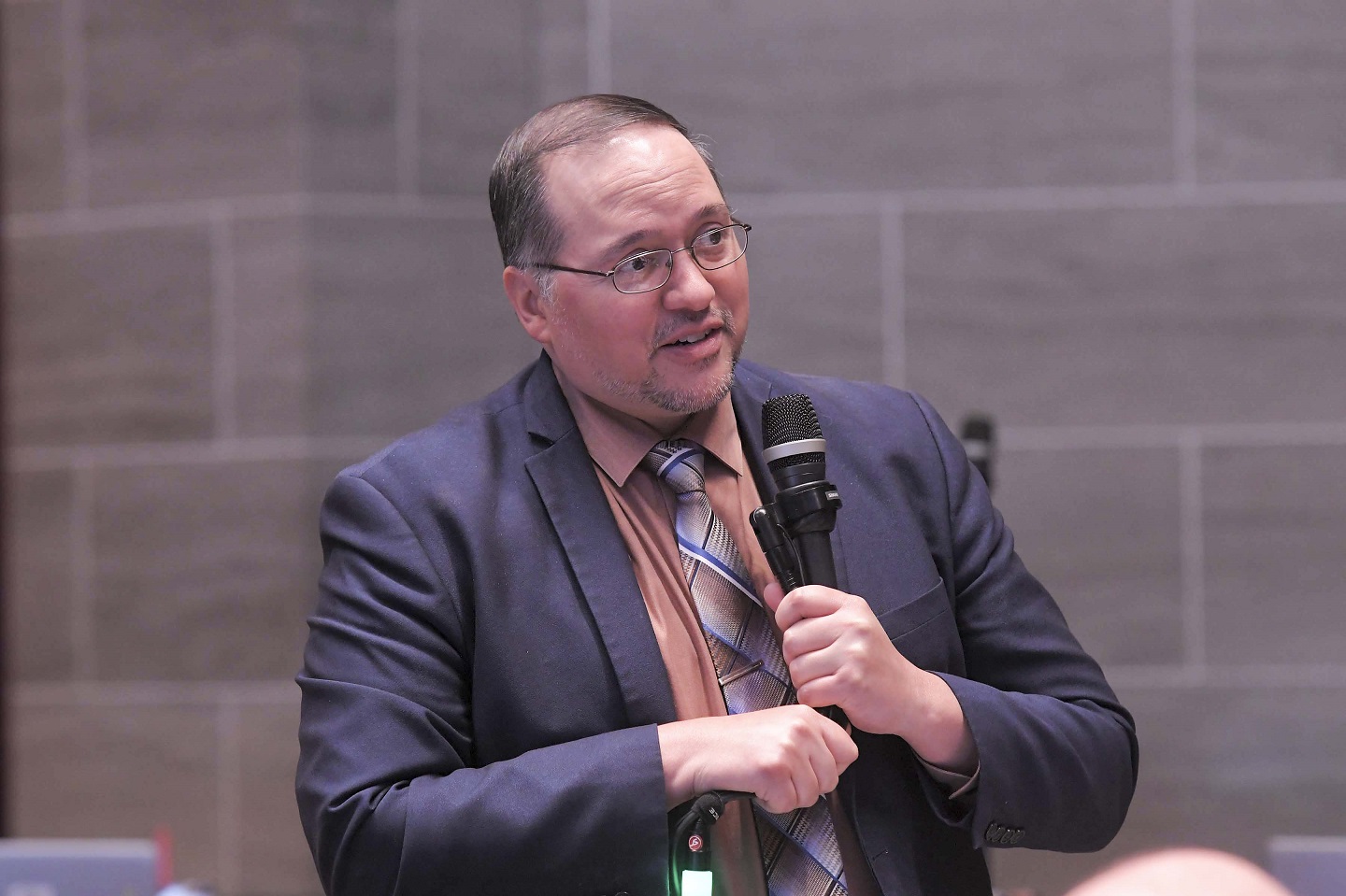
Language in two bills signed into law by Governor Mike Parson (R) will add emergency telecommunicators to the definition of “first responders,” which previously included people like firefighters, police, and emergency medical personnel. The change in designation will mean, among other things, that dispatchers will have access to the same mental health supports as those in those other jobs.
Sarah Newell, Polk County 911 Director, says that’s something from which she and others in her field can definitely benefit.
“I hear it every day. I hear it happen. I hear overdoses, I hear suicides, I hear fatality accidents in children. It happens all the time,” Newell told House Communications.
She said a dispatcher’s emotions can be constantly in transition. “We don’t stay consistent. We drop to a one, and then we’re at a nine, and then okay we’re back to a two, and here we are, ten, ten, ten, and so it’s hard for your body to adjust to those heightened adrenaline changes so often throughout the day.”
“Sometimes it’s minute-by-minute,” said Jamie Taylor, President of the Missouri Chapter of the National Emergency Numbers Association (MO NENA). “[A dispatcher] could be on a really serious call with somebody that’s wanting to harm themselves and they’re having to try to talk them down, talk them through it … they could get right off of that call and deliver a baby on the next call.”
Taylor said the proposed re-designation has been considered for years while legislators and state agencies worked to consider what changings it would bring, and how to best implement it, but he said legislators always seemed to favor the change.
Representative Robert Sauls (D-Independence) has proposed such language for several years. In his time as a Jackson County Prosecutor and later as a public defender he listened to a lot of 911 calls.
“Having seen many of the videos and listened to many of these 911 calls, I know they’re stressful, and this is something that should have always been the case. Opening that door for mental health is so important,” said Sauls. “These people are the absolute first point of contact in most instances involving a crime and what could potentially be someone’s worst day of their life. The stress that they undergo, the amount of pressure that’s placed on them at that time, these people absolutely should be treated as first responders.”
Joplin Representative Lane Roberts (R) worked in public service for more than 40 years, including as Joplin’s Police Chief and the state’s Director of Public Safety. He said he even did some dispatching early in his career.
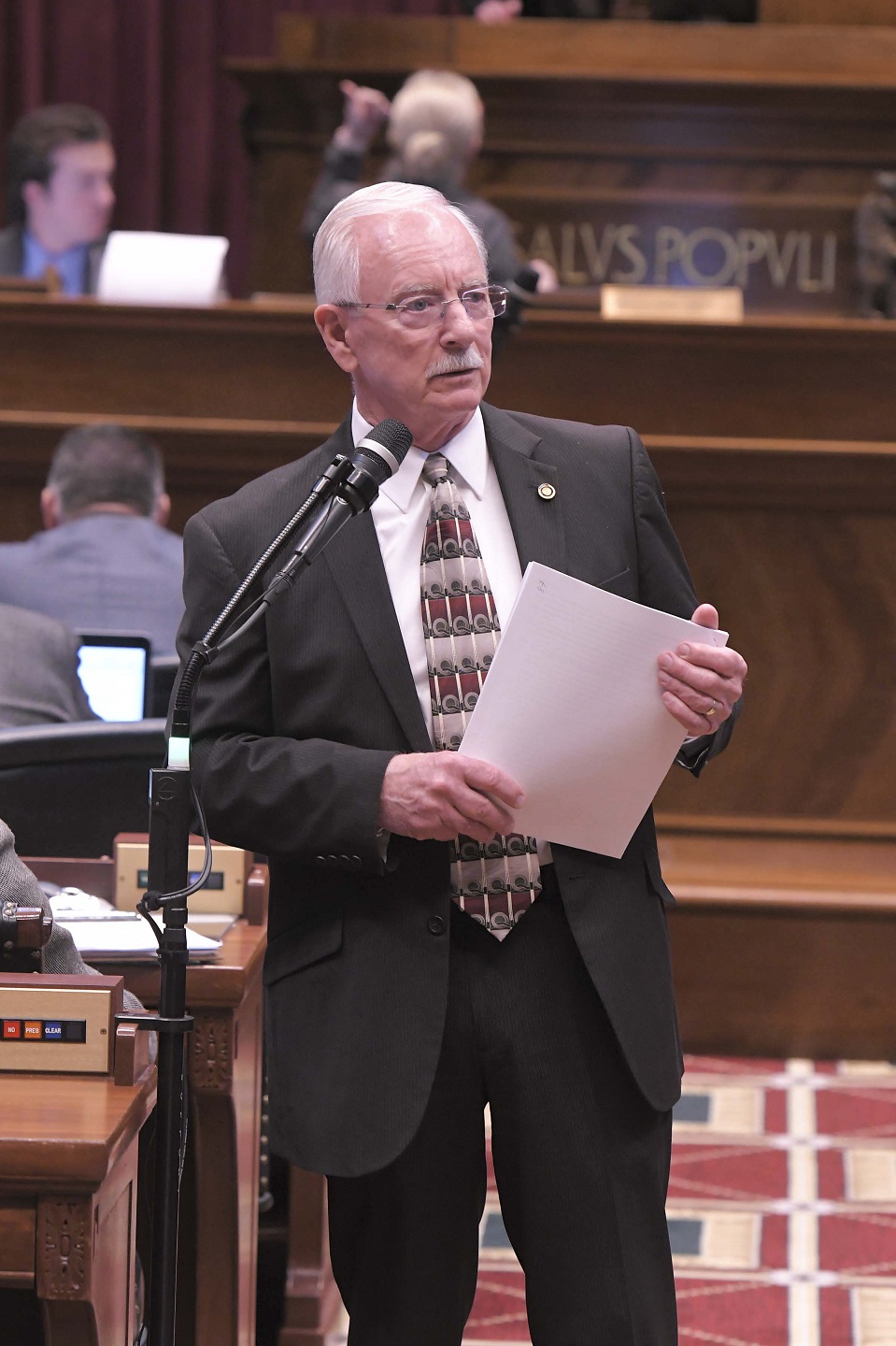
“Those people, in my mind at least, are the most underappreciated element of public safety there is,” said Roberts. “Everybody sort of takes them for granted. They’re in this windowless environment. Nobody sees them, they don’t get to see anybody, they deal with all the emotion, they deal with all the psychological trauma, but they don’t get to do anything except move on to the next calls. But, when you’re the guy in the field and you get yourself in trouble, that dispatcher’s your lifeline and suddenly they become the single most important person on the planet. There is just no way to express your appreciation for a good dispatcher.”
Taylor said like anyone who has done the job, he has experienced calls that he’ll never forget – the kinds of calls that take a toll.
He hopes this change will help to slow what has been a notably high turnover rate in his field.
He added that as much as anything, though, it will feel good for dispatchers simply to have this acknowledgement.
The change could also create access to grant dollars that could see local agencies expand the latest forms of 911 access in areas of Missouri that don’t have it. Newell and Taylor expressed their thanks to the legislators who worked for so many years on this issue.
That change in designation will take effect August 28.
Dispatchers ask for help dealing with PTSD, seek ‘first responder’ designation
The state’s 911 dispatchers are urging lawmakers to add them to the state’s legal definition of “first responders,” before the legislative session ends. Some of them visited the Capitol to share personal stories illustrating why they need the help in dealing with post-traumatic stress that comes with that designation.

First responders – which state statute currently defines as firefighters, law enforcement personnel, and emergency medical personnel – are afforded mental health resources, and several legislators say those should also be available to dispatchers.
Representative Lane Roberts (R-Joplin) has been Joplin’s Police Chief and the state’s Director of Public Safety, among other things in his career of more than 40 years. Throughout all of that time he worked with dispatchers and even worked as one at times.
“We have always underappreciated these folks. They’re kind of out of sight, out of mind. They work in a windowless environment, but they are the first of the first responders. They’re the gateway to public safety,” said Roberts. “Every time they get an emergency call they get an adrenaline dump just like people who work in the field do. The difference is, the people in the field get to go somewhere, take action, use those chemicals, while the dispatcher will simply move on to the next call, take those chemicals home at night and go to sleep with them and suffer the health consequences.”
Independence representative Robert Sauls (D) was a prosecutor in Jackson County and a public defender.
“As a former prosecutor I would regularly listen to 911 calls and what happens in those circumstances and … often times people are contacting 911 operators on their worst day. Something’s happening, they’re scared, it’s a very stressful situation, and all of these 911 operators are under these stressful environments and the thing of it is, you’ve got to go on to the next one. You’ve gotten your one situation settled, you hang up the phone, and you’ve got another one. I think it’s very important to recognize these people as first responders.”
Polk County 911 Director Sarah Newell said what she and her colleagues do is often dismissed as just answering phones or clerical work.
J.R. Webb, the Assistant Director of Springfield/Green County 911, said dispatchers, “have to be able to do a lot of things at once. They have to be able to take that phone call, at the same time they’re typing that information into a computer, at the same time that they may be dealing with first responders on the radio. The multitasking is incredible in a busy situation, and it takes a special kind of person to be able to do that. It takes a kind of type ‘A,’ take charge personality to succeed at our job and it’s not meant for everybody.”
The Chair of the State 911 Board of Governance, Alan Wells, said “Post-traumatic stress is a big, big thing for our 911 telecommunicators, and as of right now they do not have a lot of resources there to help with that.”

He said it’s not uncommon for dispatchers, especially in the smaller communities throughout Missouri, to know personally the people involved in the incidents they are handling.
“Sometimes it can be very horrifying for those operators,” said Wells. “It may be a loved one, a family member, an immediate family member, or in our case it was one of our own 911 call takers who had just left his shift, headed home on his motorcycle and hit a deer and it was a fatality. The same operators that were just working with him had to take that call and work that incident.”
Hailey Brunner is in her fourth year as a dispatcher at the Cass Co Sheriff’s Office. She remembered one week in which her rotation, “worked seven fatalities, whether it be between an accident, people harming themselves, anything of that nature, natural deaths, anything, and it’s just a wide variety, whether it’s young kids to old kids. My most recent one was a two year-old who died in a fatality car accident.”
Blake Johnson has been dispatching for five years in Green County. He said there is one call he’ll always remember.
Brunner said dispatchers can’t help but imagine the scenes that they are hearing play out over the phone, and that can result in very vivid and very upsetting imagery.
Webb said worse still, dispatchers often get no closure at the end of a call.

He said an increasing number of suicides in Missouri also directly impacts dispatchers.
Some call centers, like that at Springfield, have mental health resources that are made available to dispatchers there and in surrounding communities. Such resources aren’t available to all dispatchers in Missouri, though, especially in many smaller communities.
Several bills would address PTSD and mental health resources for dispatchers and other first responders. These dispatchers and lawmakers are among those who hope at least one of those bills is passed before the session’s end on May 12.
As swatting incidents spike House weighs tougher penalties
False reports of school shootings and other crimes have been rampant for months throughout the United States, and the state House is considering a bill to deal with such crimes.

The practice is commonly called “swatting:” making a false report of a crime so that law enforcement – particularly a SWAT team – will respond to an address. It is often used as a revenge tactic, as a way to cause unrest, or in the minds of some it is even seen as a joke.
It isn’t funny to Representative Lane Roberts (R-Joplin), who has a lengthy career that includes time as Joplin’s Police Chief and Director of the Missouri Department of Public Safety. He said such reports create needless danger for the public and for law enforcement.
“Frequently people will make a false call for the purpose of harassing someone, discriminating against someone. It affects their reputation, their business, there’s a lot of consequences to some of these false reports and some of it’s pretty darn malicious,” said Roberts. “The difficulty is that the penalties for doing that now are pretty mild compared to the potential for injury that goes with a call like that. It’s just not something that we can put up with.”
For several years he has proposed legislation to address swatting. This week his latest such effort was heard by the House Committee on Public Safety, which he chairs.
He stressed to the committee that the key to House Bill 302 is how it would define the crime. That is, to give a false report to law enforcement, a security officer, a fire department, or other such organization, “with reckless disregard of causing bodily harm to any person as a direct result of an emergency response.”
Roberts explained, “This specifically says the person who makes the false report for the purpose of doing any of the enumerated things … we’re talking about, what’s the intent of the call?”
Under HB 302 those who make false reports that result in a person being killed or seriously hurt could be charged with a class-B felony, punishable by 5 to 15 years in prison. Falsely reporting a felony crime would be a class-E felony (up to four years in prison). Any other false reports would be a class-B misdemeanor (up to six months in jail and a fine of up to $1,000).
Juveniles making false reports for the first time would be guilty of a status offense. Any further offenses would be class-C misdemeanors and would require a juvenile court appearance or community service and a fine.
The bill would hold any person convicted under its provisions liable for the costs of any emergency response caused by their false report. They could also be sued by any victims. Roberts said that is because swatting can cause, “damage to someone’s business, their reputation, their ability to make a living, their livelihood, so if someone engages in that kind of conduct for the purpose of causing harm to someone’s livelihood, then by all means they should be accountable.”
Jordan Kadosh with the Anti-Defamation League spoke in favor of HB 302. He reiterated that instances of swatting have been spiking, especially after many of the recent shootings at schools throughout the nation. He said after the recent shooting that killed six people at The Covenant School in Nashville, Tennessee, Missouri law enforcement was “inundated with false reports.”
He said the bill is narrowly crafted to help prosecutors make cases against swatters and at last create real penalties for maliciously making false reports.
The committee has not voted on HB 302. Last year the House passed similar legislation 142-0, but it did advance out of the Senate.
Pronunciations:
Kadosh = kah-DOEsh
Legislative package addresses domestic violence, trafficking
Missouri legislators passed a package of measures intended to protect victims of sexual and domestic violence and trafficking before the 2022 regular session drew to a close on May 13. Senate Bill 775 contained language sponsored by several House members, and now awaits action by Governor Mike Parson (R).

“It’s our big legislative win for this session,” said Jennifer Carter Dochler, who was the legislative liaison for the Missouri Coalition against Domestic and Sexual Violence during the regular session.
The bill was handled in the House by Representative Hannah Kelly (R-Mountain Grove), who was glad to see it reach the governor’s desk despite issues in the legislature that created challenges for all legislation this year.
Kelly said of particular importance to her, personally, in SB 775 is the language that establishes the “Sexual Assault Survivors Bill of Rights.” This seeks to make sure victims know their rights regarding the gathering of evidence and related medical exams; access to incident reports; and protections from intimidation and harassment by an attacker.
Kelly said someone important in her life is a victim of rape and, “The provisions in this bill, I believe, would’ve brought justice for this person in a swifter manner.”
The Bill of Rights portion is meant to, among other things, give some clarity and guidance to victims, who often find themselves traumatized and with no knowledge of what to do or to whom to turn.
“All [that a victim knows] is a really horrible thing has happened that nobody ever dreams will happen to them,” said Kelly. “The heart and soul of it is protecting victims and providing stronger protections and providing education … and what greater cause to unite behind than educating and empowering victims in these horrible situations to know what their rights are and to know the pathway by which they can appropriately seek justice.”
SB 775 also clarifies definitions in Missouri law regarding “sexual contact” and “sexual conduct.” Representative David Evans (R-West Plains) said he dealt with at least one case, during his 28 years as a judge, in which unclear definitions regarding contact with minor victims hindered prosecution.
“Taking ambiguous law or badly written law and making it clear is important clearly for the victims of crime but also clarifies, which is required in criminal law, exactly what the crime is,” said Evans. “None of us can be convicted of a crime that’s ambiguous. That’s protection under due process … it’s good to have specific law especially when you’re dealing with a very serious felony.”

SB 775 would specify that no persons younger than 18 will be prosecuted for prostitution, and if located by law enforcement while engaged in commercial sexual acts, they will be considered a victim of abuse and referred to the Children’s Division and juvenile officers to receive help. It also eliminates the requirement that a person under 18 and charged with prostitution must prove they were coerced to avoid conviction.
These were provisions found in legislation sponsored by Representative Ed Lewis (R-Moberly), who said the laws regarding these individuals needs to be focused on getting them help.
“A lot of times a minor can be in that lifestyle and not even know that they’re being trafficked, not even know that they’re being abused. They think, ‘Well no, I’m doing this of my own free will,’ but they’re not. They’re being abused and used by some adult for their own gain, and we have to get them the help they need to help them to understand that this is not right,” said Lewis. “Instead of looking at these people who have come to rescue them as rescuers they can look at them as the enemy and we have to make sure that they get the help that they need so they understand what their outcome should be and how to get back to what we would call a normal life free of abuse.”
Other related sections deal with prosecuting those who attempted to engage in sexual acts or pornography-related offenses with individuals under 18.
The bill also contains language sponsored by Representative Lane Roberts (R-Joplin) dealing with orders of protection. It would state that a person with an order of protection against them cannot skip a court date regarding that order and then plead ignorance to knowing it was still in effect. He and Carter Dochler say this defense has often been successful for abusers who would violate an order and then say they didn’t know it was in place because they didn’t attend a hearing.
Roberts has often said that this and other proposals he has filed stem from his time in law enforcement – including as Joplin’s police chief and the director of the Department of Public Safety – and times in his career when he couldn’t help a victim because of how the law was written.
Along that same line, Roberts said a provision in SB 775 that is important to him is one that allows victims to testify via video rather than have to appear in court for a domestic violence proceeding.

Roberts says too often, a victim is afraid to proceed with prosecution for fear or retribution by their abuser. This provision addresses that fear; specifically that requiring a victim to appear in court creates an instance in which their abuser will know where and when to find them.
With all these issues, legislators have to craft language that protects victims but also allows for due process for those who are accused. Evans believes with SB 775, Missouri gets closer to finding the right balance between those considerations, “and again that’s one thing I really enjoy doing, is balancing the rights of those that are charged but making it absolutely clear to protect the victims of the crimes as well. I think we’re getting there.”
The House vote that sent SB 775 to the governor was 141-0. Carter Dochler said the Coalition is, “very grateful and really excited [that] at a time where there has been so much turbulence on different issues that everybody could really come together and find agreement on items that would make things better for victims of domestic violence or sexual assault, or some other related judicial proceedings.”
SB 775 includes several other provisions, including those that would make it a crime for any coach of minors to abuse a minor, whereas currently law speaks only to high school coaches; extends protections against the release of a victim’s personal information to include their personal email address, birth date, health status, or any information from a forensic testing report; and further restricts when the prior sexual conduct of a witness or victim in a sexual offense case may be inquired about in a legal proceeding.
House bill would increase penalties for ‘swatting’
The House has voted to increase the penalties for deliberately reporting someone to law enforcement with the intent or hurting, embarrassing, or intimidating them; a practice commonly referred to as “swatting.”

Under House Bill 1704 a person would be guilty of making a false report if they intentionally make, or causes to be made to any enforcement organization, a false report that could cause bodily harm as a result of the emergency response.
“The bill hinges on the statement that it is with reckless disregard of causing bodily harm to any person as a direct result of an emergency response,” said bill sponsor Lane Roberts (R-Joplin). “It’s an effort to keep people from weaponizing the public safety system to harm other people; sometimes physically, sometimes by reputation or intimidation.”
“This also deals with the use of the system to humiliate, embarrass, or have people forcibly removed from premises, and this is often aimed at minorities, aimed at religious differences, sexual orientation … recent news has been replete with that kind of conduct,” said Roberts. “This bill prohibits that kind of use of public safety to harm others, to harm their reputation, to harm them physically, or otherwise damage an individual.”
Those who make false reports that result in a person being killed or seriously hurt could be charged with a class-B felony, punishable by 5 to 15 years in prison. Otherwise, false reports of a felony crime would be a class-C felony (up to 7 years in prison) and false reports of a misdemeanor would be a class-B misdemeanor (up to six months in jail and a fine of up to $1,000).
Roberts and other legislators have discussed in recent years how incidents of “swatting” seem to have increased, and in some cases those have resulted in deaths and serious injuries. Roberts’ legislation is the latest attempt to address that.
His proposal was sent to the Senate with unanimous bipartisan support, 142-0. Democrats contributed to the language of HB 1704, and Representative Ashley Bland Manlove (D-Kansas City) spoke in support of it. She said she remembers a recent “swatting” incident that happened just across the state line from her district, in Kansas.
“Somebody he was on [a] video game with in California was apparently mad that they had lost the game and used an app to deploy SWAT to the man in Overland Park’s house saying, ‘He’s got somebody in the house and they’ve got hostages,’ so SWAT comes in hot immediately. Unfortunately the young man was a black man,” said Bland Manlove. “I’ve also heard of this being used, as [Representative Roberts] said, in domestic disputes. Somebody’s mad that they don’t have the kids or they have to pay child support so then they constantly use the police, filing false reports against the other partner.”
The bill was also the product of bipartisan cooperation, with the inclusion of changes authored by Representative Robert Sauls (D-Kansas City).
In addition to possible incarceration and fines, violations of the language of HB 1704 could result in civil penalties.
HB 1704 was sent to the Senate with two full weeks remaining in the legislative session.
